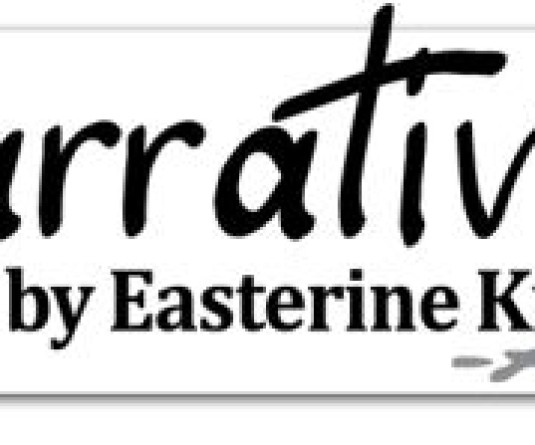
Vemedo J Kezo
Department of Education, St. Joseph’s College, Jakhama
PRELUDE The mass media explosion and digital revolution have make things so versatile that their usage has become indispensable in our life.
The media, through which the changes in human habits are promoted, must be adapted to the need of our time. They in a way determine the trend of our civilization. It is in this backdrop that we need to define and redefine our skills, orientation and our focus. Adapt or perish is the maxim which governs nature and every sphere of human endeavour. Whether it is in economic, religious or political it is this maxim that governs us. Therefore, this article attempts to define leadership formation for multi tasking skills through the angle of human resource development.
KNOWLEDGE AND LEADERSHIP
We have so much of unskilled and unemployed youth. We have produced through our formal education so much of unskilled human resource, and a certain degree of knowledgeable youth, however, true leadership comes only, when knowledge is transmitted into a practical reality. The celebrated British thinker, Francis Bacon often cites that knowledge is power, but the fact is that knowledge is only a potential power. It becomes power only when it is organised into definite plans of action directed to a definite end. An educated leader is the ‘man who so developed the faculties of his mind that he may acquire anything he wants’ in order to meet the demands of the needs of the society. Apart from workable knowledge is the specialized knowledge. Knowledge is a tag for influence, but this positive influence comes when it is acquired through highly organized and intelligent way. Without specialized knowledge, achievement becomes difficult. All the outstanding leaders emerge from their own specialized field. It is the knowledge that touches and changes his or her life.
NURTURING EMOTIONAL INTELLIGENCE
Intelligent quotient is one of the main qualities of influential leader for varied roles and responsibilities, but today, emotional quotient is emphasised for the qualities of making effective leaders.
It is the ability to relate, work and cope with others, to make sacrifice, and inject a sense of enthusiasm in others. Perhaps the most central characteristic of effective leadership is ‘the ability to put aside the impulse to dominate but to delegate his power to others.’ No doubt a certain degree of control is necessary for a leader to function however, it should not be considered as the main ingredients of effective leadership.
The effective leadership does not come alone from control but in other qualities of passion, sensitivity, patience, courage, firmness, enthusiasm, wonder etc. You may be able to compel people to maintain certain standards by stressing duty, but the highest moral and spiritual achievements depend not upon a push but pull. This is the quality of immortal leadership. The leadership force coming from outside by virtue of authority and position will fade immediately the moment one steps down from the position, but the leadership force coming from within will have a lasting impact and it will outlive the person.
True leadership studies the gifts and worth of the people he is leading. He delegates, and empowers his subordinates and makes them feel important. As everyone has an invisible sign hanging from his or her neck saying, make me feel important.
No man will make a great leader who wants to do it all by himself or herself or get all the credit for doing it.
If you should get an occasion to give your colleagues and friends a little more praise than criticise, they will be charged with energy to rise up to the occasion.
A complete leader is not threatened by his successor but gracefully prepares the way for his or her smooth functioning.
SELF KNOWLEDGE AND THE LEADERSHIP FORCE
The Socratic wisdom know thyself is the key to every successful leadership. In on one of his discourses, he further said an unexamined life is not worth living. What is then, meditation to do with the formation of the leadership task. The Catholic Church since its inception knows the benefit of this internal process of self discovery and therefore, recommends to those who would like to follow Christ in a committed way.
Even the reputed multinational companies have realized the benefit of the process of self discovery and therefore, they exploit this resource in their human resource management. This process is the simplest and most effective way keeping in touch with oneself. We know so much beyond our feelings but very little about our inner self. Often we live in the illusion of our own perfections.
Why should we be aware of our own shadows and light? If we are not aware of our own virtues and vices, often project our own selves onto other people. If we do not understand that the enemy is within, we will find thousand ways of making someone out there into a demon, and we will be making leaders who oppress rather than liberate and reform. ‘Good leadership comes from people who have experienced their own inner darkness and arrived at the place where we are at one with one another to a place of hidden treasures.’
Those who know more about their inner world, and deeply in touch with their feelings, they are the ones who know where they are leading. In contrast ‘those who don’t they are like loose cannons, they have plenty of fire power, but no clear target.’ They are paralyzed by indecision, avoid risk, and walk only the smooth beaten paths and don’t realize their potential. Reflecting further, in this line of though, many business executives have evolved on the same principle of taping human resource. The SWOT analysis is one such example to quote. The higher degree of self awareness helps a person analyse his strengths, weaknesses, opportunities available with his given resource, and see the threats and challenges that he will face in executing the plan and working for his or her targets.
USING TIME CREATIVELY
You are defined by how you use your time creatively and constructively. We continue to grow and learn till we die. The moment we stop learning, we stop growing. Many of us are not ready to take risk and face the unknown, because we are not open to change. If we want to be very effective, and be in demand, we need to make use of every bits of time available. Whoever has a sense of mission to achieve, can always manufacture time. Supplementing our knowledge and refining and adding our skills build us to be a person who can handle with multitasking jobs. Having an inquisitive mind and willingness to learn in the direction of our work gives us better refinement to our leadership skills.
For those who know how to use their time wisely and judiciously, fulfilling a task comes very spontaneous.
Doing everything is not the hallmark of a good leadership but acting on the basis of the priority is the soul of a true leadership.
AFTERTHOUGHT
Authentic leaders for multi tasking skills are not afraid to face their inner world. Rather they are persons who accept their own vulnerability and exploit that weak and strong part for their own benefits. Thus forming leader for multi tasking skills, start with the inner journey and without this inner journey, no true leaders can emerge for the positive change on humanity.
The corporate leadership always demands that we are able to adapt and be flexible in order to rise up to the occasion. It is in this context that systematic gathering of knowledge along with the conscious effort to acquire the skills in handling oneself and humility to receive feedback and adopt new strategies for life. This defines the domain of the leadership for the multitasking skills.





